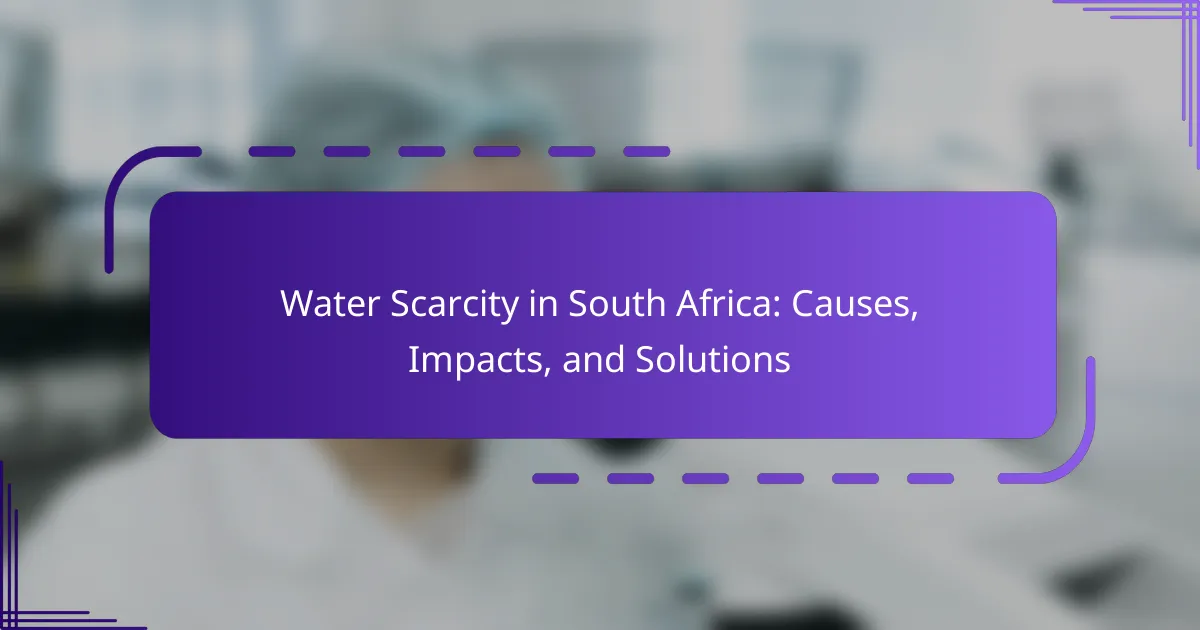Water scarcity in South Africa is characterized by the insufficient availability of fresh water necessary to meet the demands of its population and agricultural sector. Contributing factors include climate change, population growth, and inefficient water management practices, leading to approximately 14 million people facing water shortages. The impacts of this crisis are profound, resulting in […]
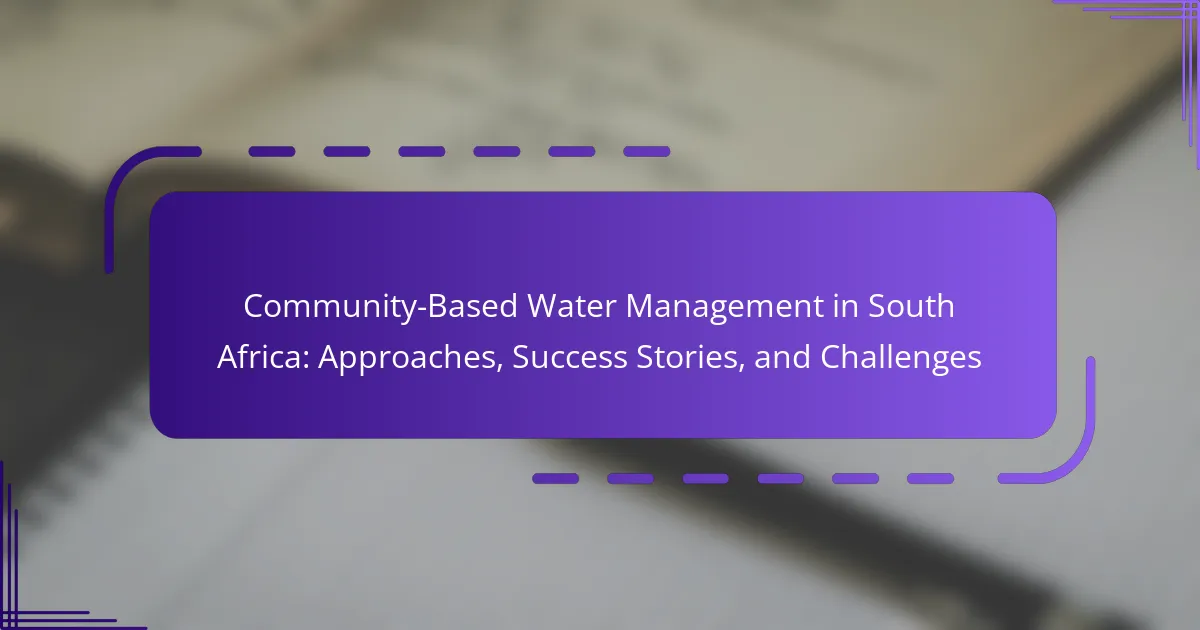
Community-Based Water Management in South Africa: Approaches, Success Stories, and Challenges
Community-Based Water Management in South Africa is a participatory approach that involves local communities in the decision-making processes related to water resource management. This method aims to empower communities and enhance sustainable practices by incorporating local knowledge and needs. The article outlines various approaches used in this management strategy, including participatory planning, capacity building, and […]
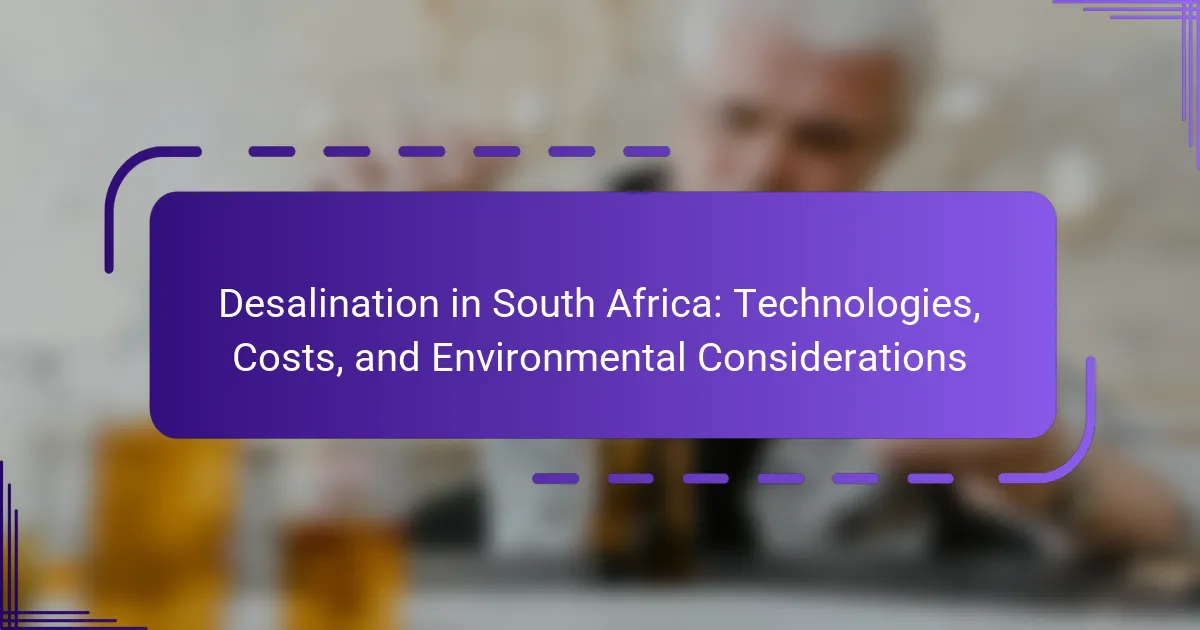
Desalination in South Africa: Technologies, Costs, and Environmental Considerations
Desalination is the process of extracting salt and impurities from seawater to produce fresh water, which is increasingly vital for South Africa facing significant water scarcity issues. The country has experienced severe droughts and limited freshwater resources, making desalination a critical alternative water supply, particularly in coastal regions. While desalination can support agricultural and industrial […]
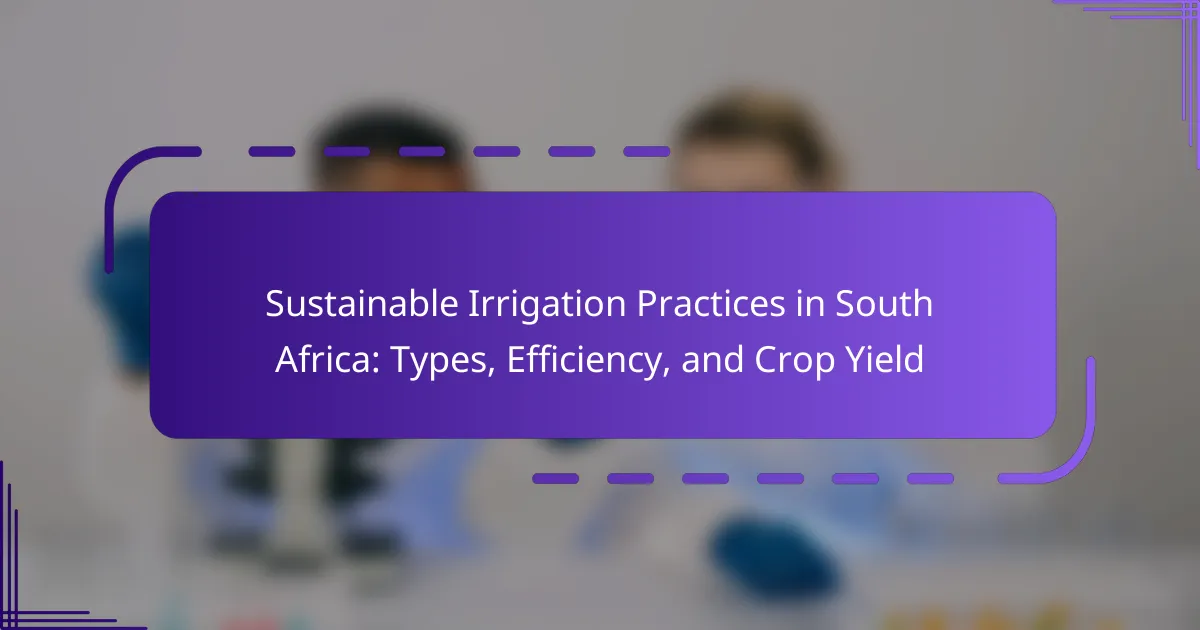
Sustainable Irrigation Practices in South Africa: Types, Efficiency, and Crop Yield
Sustainable irrigation practices in South Africa focus on methods such as drip irrigation, rainwater harvesting, and soil moisture sensors to enhance agricultural efficiency. These practices significantly improve water use efficiency, with studies indicating potential reductions in water usage by up to 60% and increases in crop yields by 20-30%. The integration of precision irrigation technologies […]
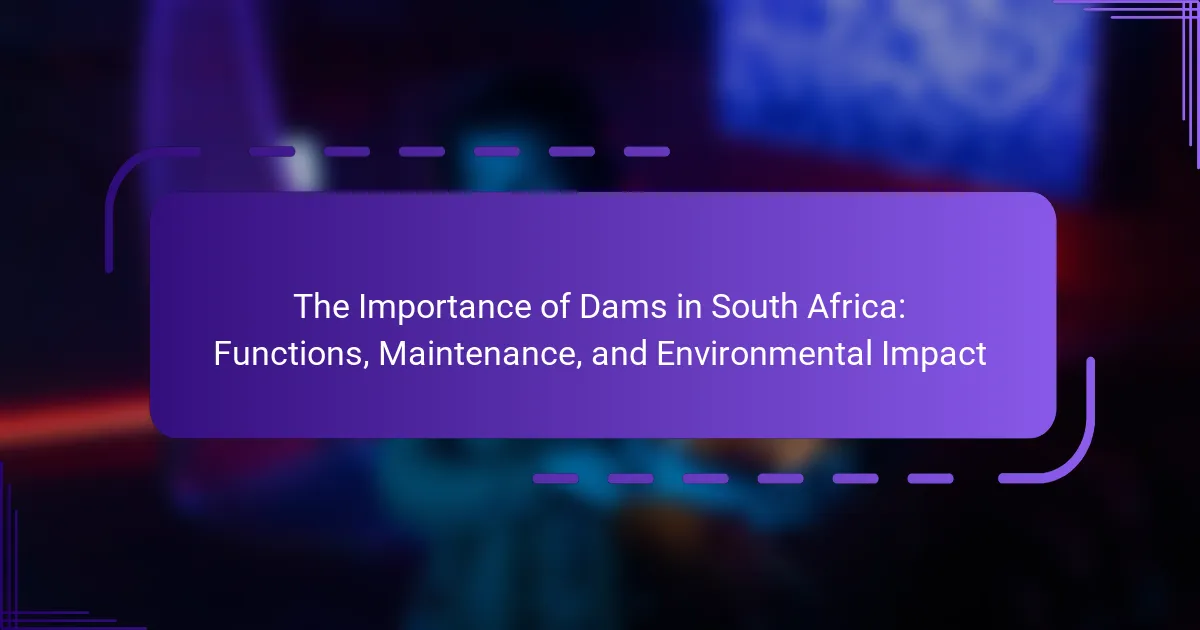
The Importance of Dams in South Africa: Functions, Maintenance, and Environmental Impact
Dams in South Africa are critical infrastructures that play essential roles in water management, flood control, and hydroelectric power generation. They provide approximately 60% of the country’s water supply for agricultural, industrial, and domestic use while supporting local ecosystems and biodiversity. With over 400 dams, including the largest, the Gariep Dam, regular maintenance practices such […]
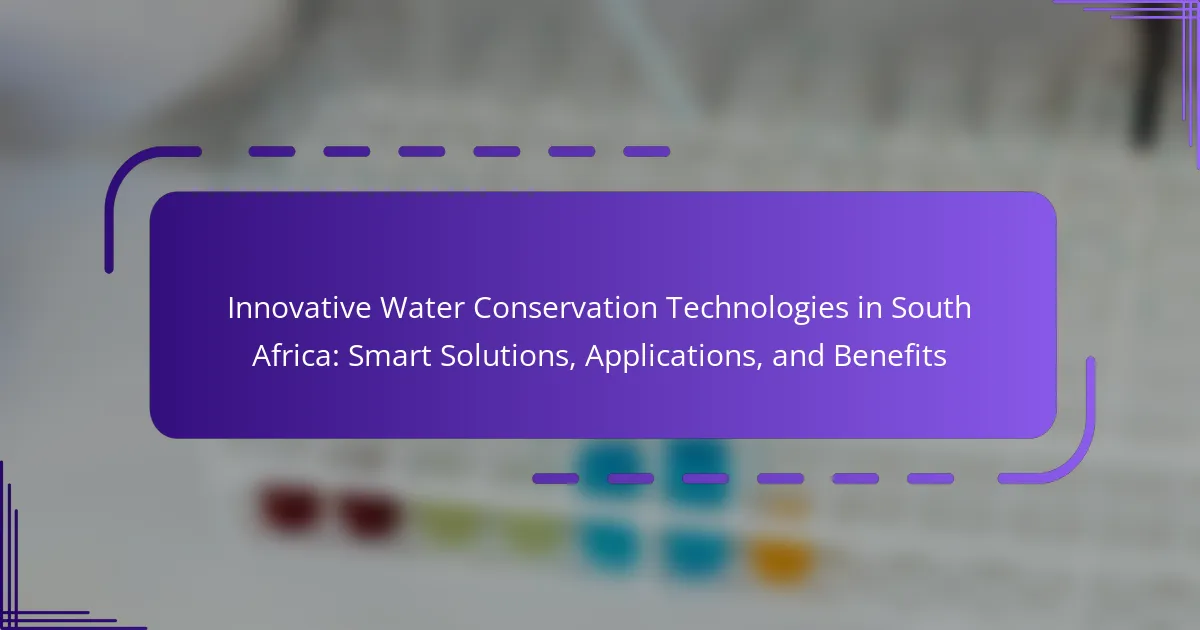
Innovative Water Conservation Technologies in South Africa: Smart Solutions, Applications, and Benefits
Innovative water conservation technologies in South Africa include smart irrigation systems, rainwater harvesting, and wastewater recycling. These technologies aim to address the significant water scarcity challenges faced by over 50% of the population experiencing water stress. Smart irrigation systems optimize agricultural water use through sensors and weather data, while rainwater harvesting captures and stores rainwater […]
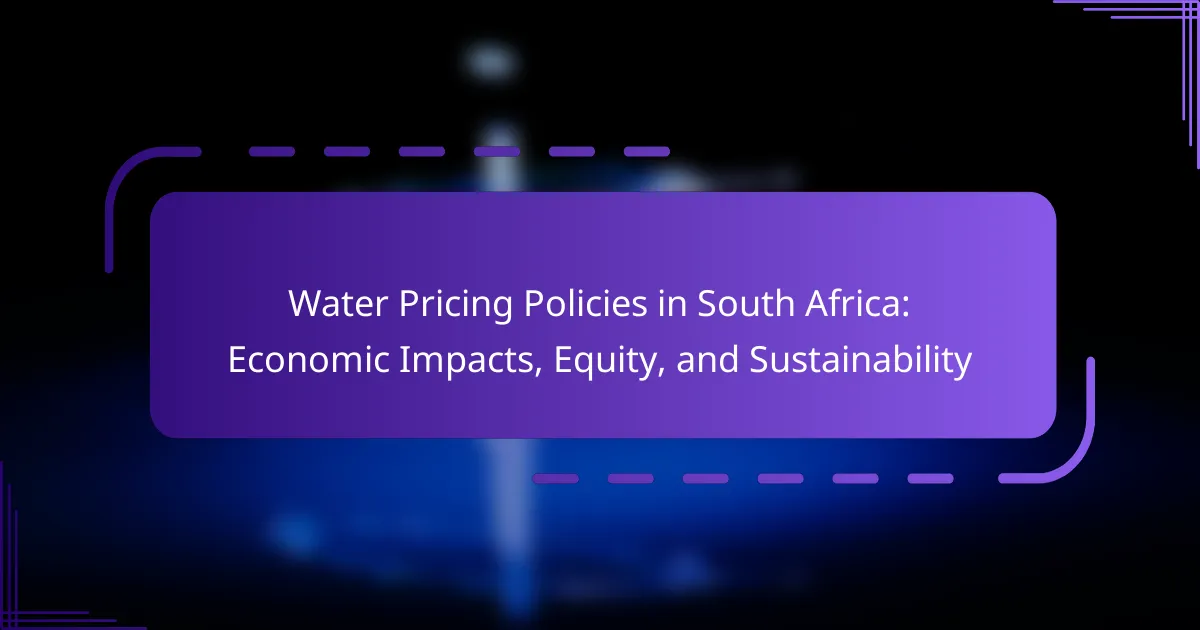
Water Pricing Policies in South Africa: Economic Impacts, Equity, and Sustainability
Water pricing policies in South Africa are essential strategies designed to manage the country’s limited water resources effectively. These policies aim to balance economic, social, and environmental considerations by implementing tiered pricing structures that encourage conservation and equitable access. Influenced by the National Water Act of 1998, the pricing mechanisms address historical inequalities and promote […]
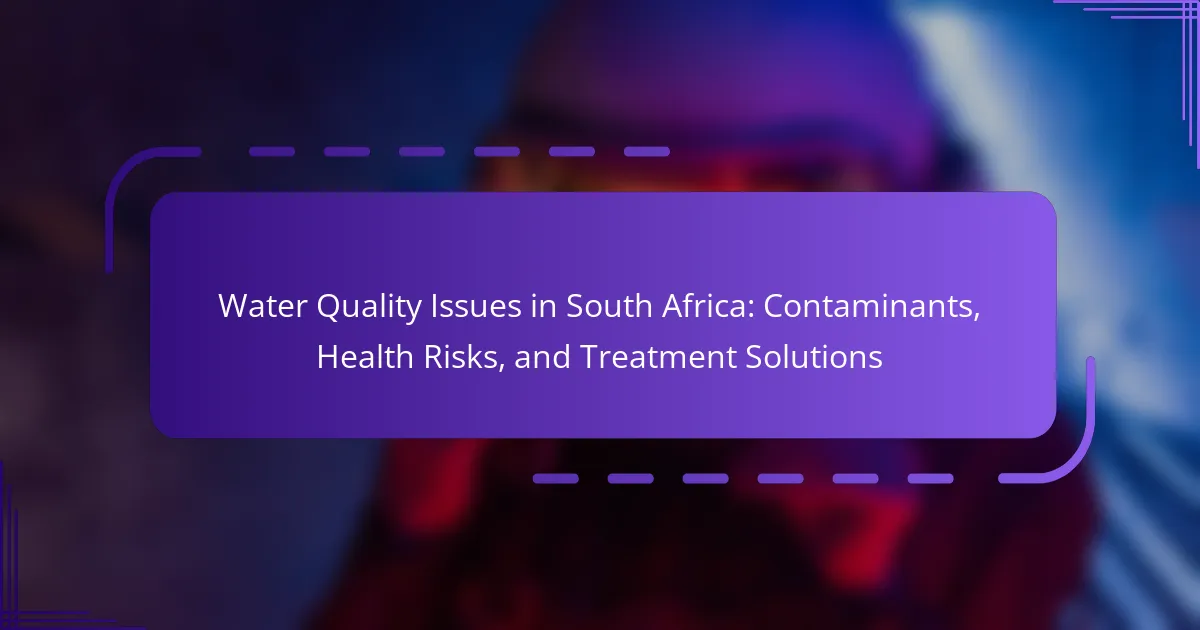
Water Quality Issues in South Africa: Contaminants, Health Risks, and Treatment Solutions
Water quality in South Africa is significantly impacted by contamination from pollutants, inadequate sanitation, and water scarcity. Key pollutants include heavy metals, pathogens, and agricultural runoff, which compromise the safety of water sources and contribute to the prevalence of waterborne diseases. Regular assessment methods, including physical, chemical, and biological testing, reveal that many water sources […]
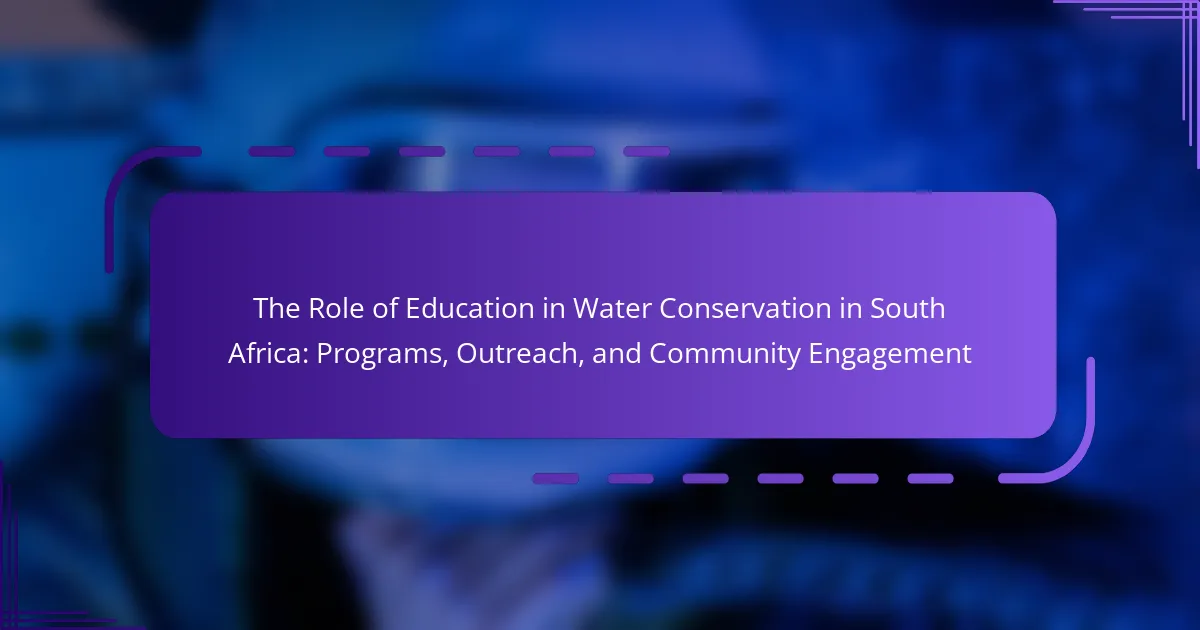
The Role of Education in Water Conservation in South Africa: Programs, Outreach, and Community Engagement
Education is a vital component in promoting water conservation in South Africa, influencing community awareness and sustainable practices. Various educational programs, such as the “Water Wise” initiative and “Catchment Management” efforts, aim to enhance understanding of water scarcity and responsible usage among individuals and communities. The Department of Water and Sanitation supports outreach programs that […]
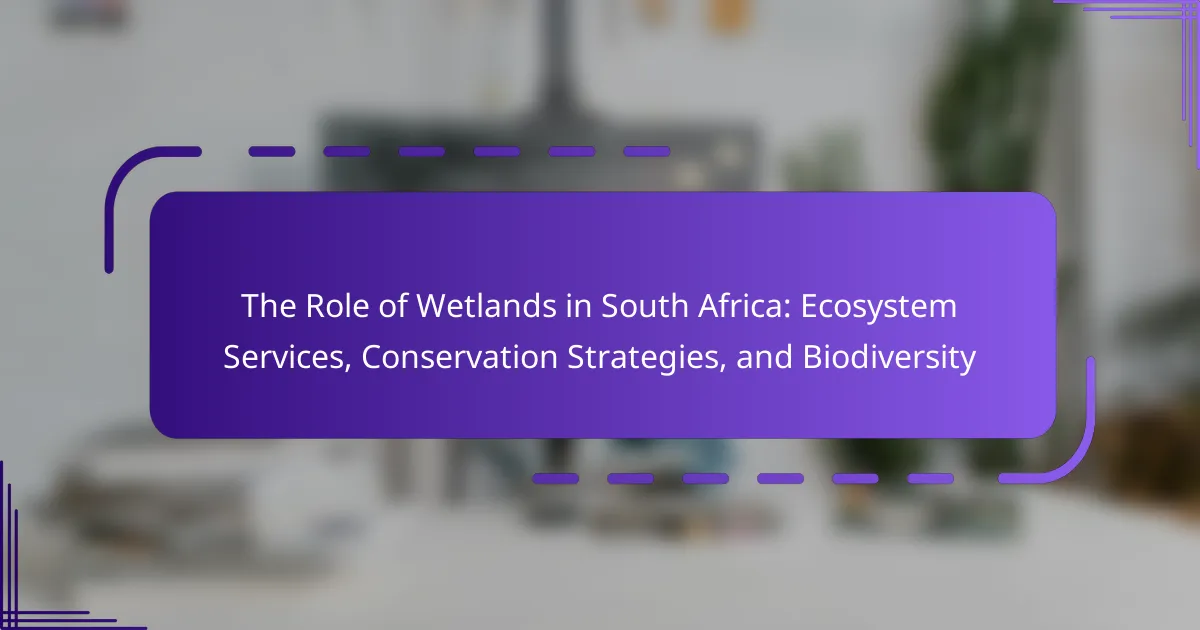
The Role of Wetlands in South Africa: Ecosystem Services, Conservation Strategies, and Biodiversity
Wetlands are vital ecosystems in South Africa, characterized by saturated soils, water, and unique vegetation. They provide essential services such as habitat for diverse species, natural water filtration, flood control, and carbon storage, which contribute to climate change mitigation and food security. However, wetlands face significant threats from urban development, agriculture, pollution, and climate change, […]
